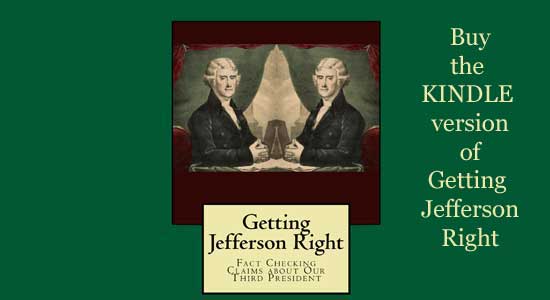Posts Tagged ‘david barton’
John D. Wilsey Endorses Getting Jefferson Right
In his second edition of The Jefferson Lies, David Barton provides a lengthy critique of our work in Getting Jefferson Right: fact-checking Claims about Our Third President. We intend to use that material in our own second edition which I hope to publish sometime in 2016. In response to Barton’s new edition, I am going to…
Read MoreDavid Barton on Real Life with Jack Hibbs: Did the University of Virginia Have Chaplains?
David Barton was on Calvary Chapel pastor Jack Hibbs’ show Real Life with Jack Hibbs last night. Part one is available on You Tube with apparently more to come. They didn’t get into much until near the end of this segment. At about 22 minutes into the video, Barton accuses others of using history to…
Read MoreThe Emancipation of James Armistead Lafayette
In his World rebuttal to us, David Barton claims that the case of James Armistead Lafayette proves that we did not take into account slave laws other than the 1782 law allowing owners to emancipate their slaves. The situation of this slave who became a double agent during the Revolutionary War is an interesting story…
Read MorePrice Reduced – Getting Jefferson Right: fact-checking Claims about Our Third President
Get the book David Barton doesn’t want you to see. Now get it cheaper. Until early next week, I am lowering the price of the Getting Jefferson Right in paperback to $9.95 (23% off) and the Kindle version to $3.99 (20% off). It will take awhile for the Kindle price to change on Amazon but you can get the…
Read More